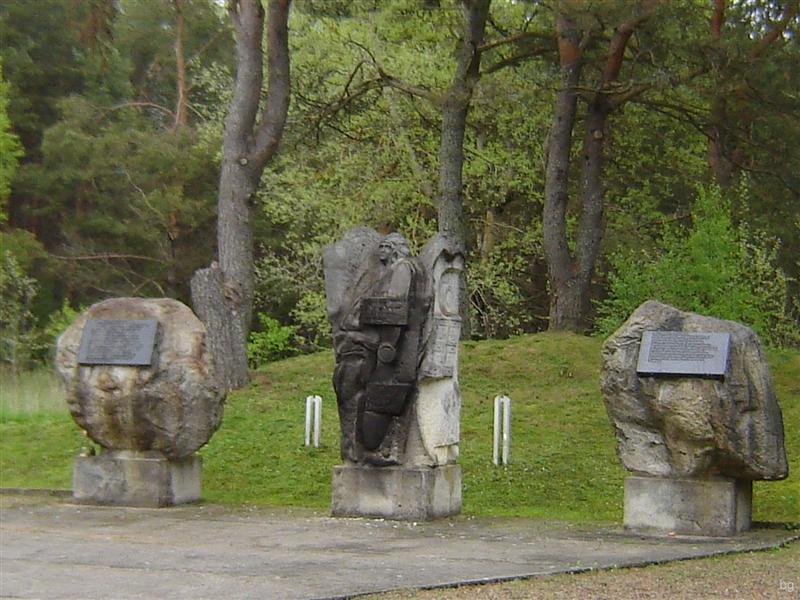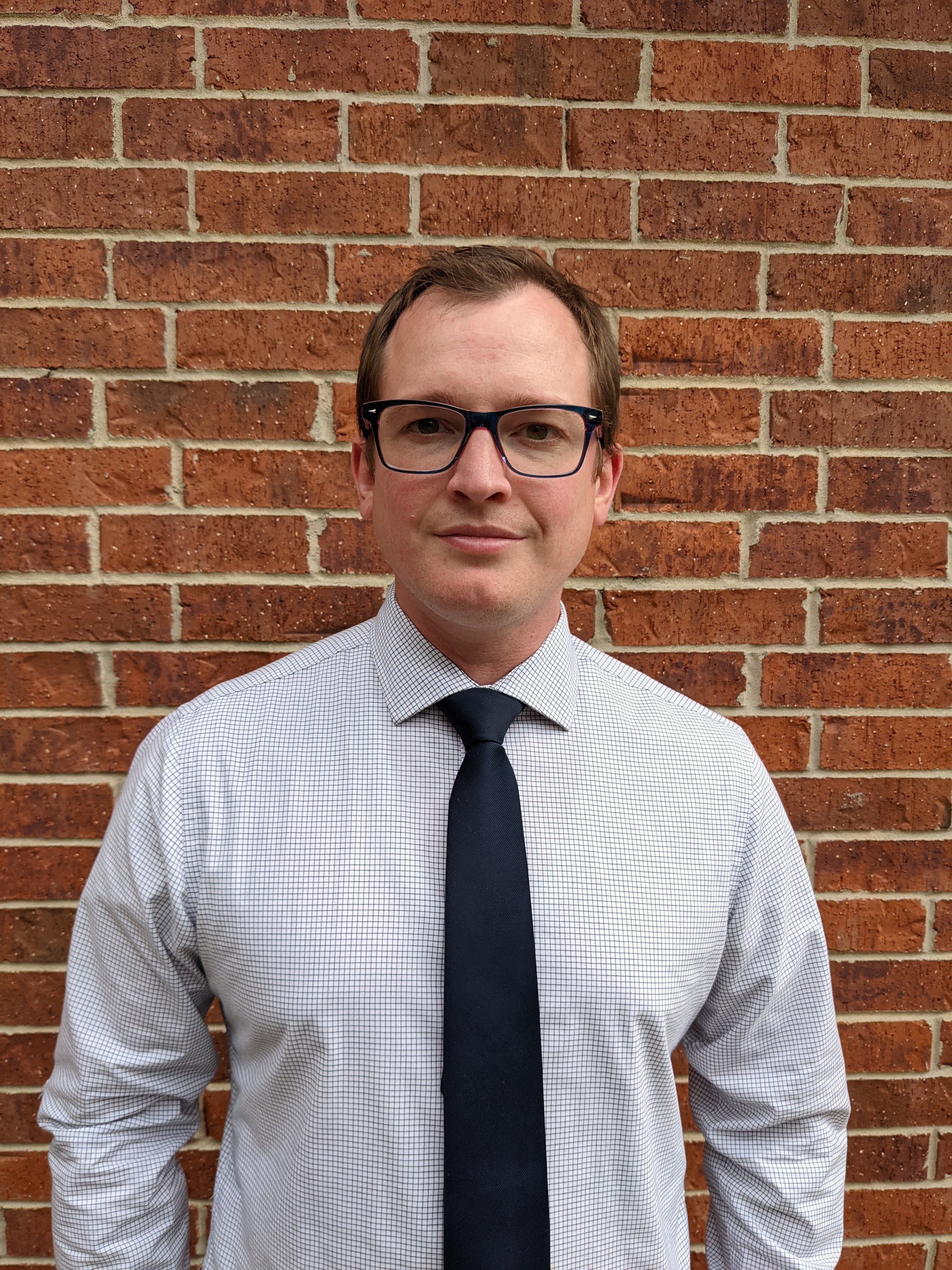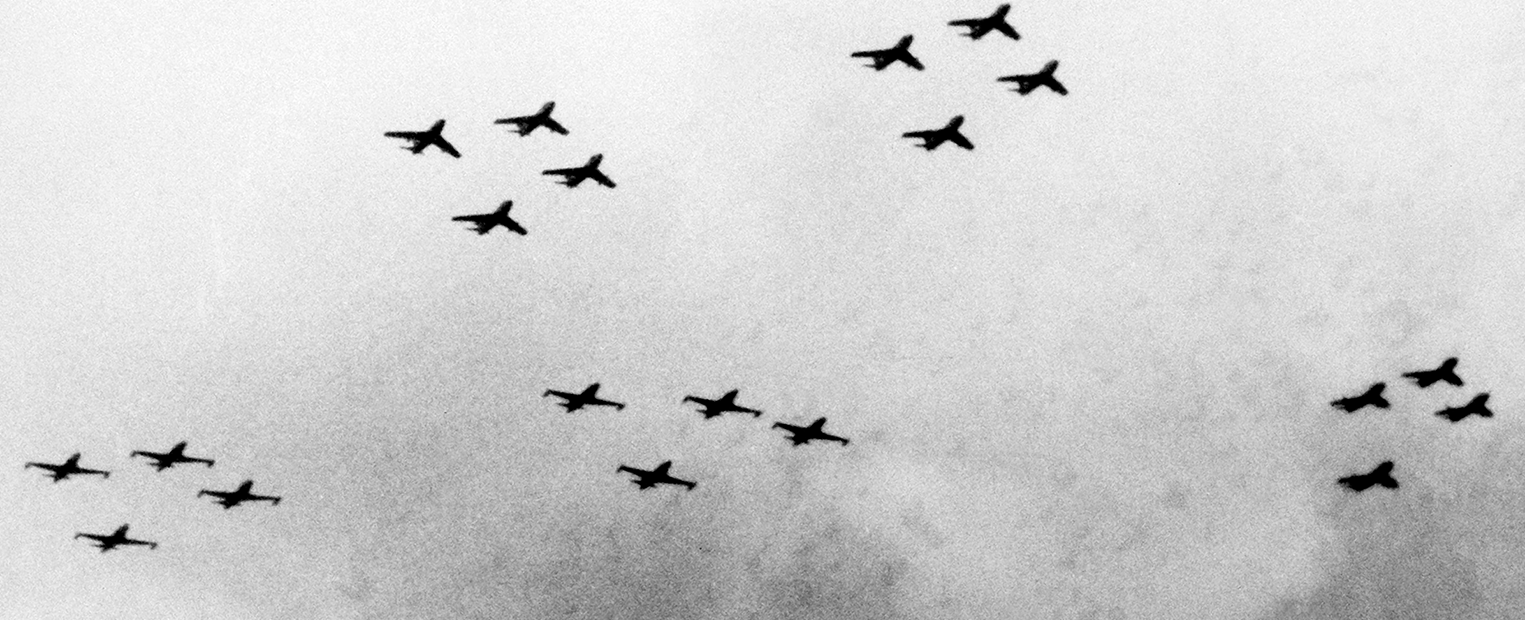Graduate and Undergraduate History Students Get Big-Name Support for Research Into the Costs of War for America’s Aviators
Jorden Pitt, a doctoral candidate, and Holly Harris, an undergraduate, may be pursuing different degrees, but they share a passion: telling the stories of America’s aviators. Recently, both history students received fellowships to assist their studies.
According to William Meier, Ph.D., associate professor of history and department chair,
their recognition is a reminder of the important role student research opportunities play in TCU’s teacher-scholar model.
“Historians are storytellers, and the stories we tell depend on the type of in-depth research that Pitt and Harris do in archives, libraries and museums,” Meier said.
“In the Department of History, research skills are central to our curriculum and embodied in the teacher-scholar model, in which faculty guide undergraduate and graduate students in making their own interpretations of the past,” he concluded.
A Family Affair

For Harris, a family connection to military aviation spurred her interest in history; in particular, the experiences of aviator POWs in World War II.
Warren David Gribbons, a relative of Harris, served in World War II as a bomber flight engineer and gunner. According to records, Gribbons and his crew were shot down by Nazi forces in January 1944 during a mission over northwest Germany. Gribbons, like many Allied aviators, was held by the Nazis in Stalag Luft IV, located in modern-day Poland.
“He left my family his diary, medals and related memorabilia, which sparked my interest in the subject. I want to know more about the life of an American air force bomb squadron POW,” Harris said.
The personal connection became the basis for Harris’ Honors thesis project.
The Gilder Lerhman Institute of American History, one of the nation’s premier non-profit promoters of K-12 American history education, awarded Harris a College Fellowship in American History for her project.
The College Fellowship will provide Harris with $3,000 to conduct undergraduate history research. Harris plans to use the funds for trips to the National World War II Museum, the Imperial War Museums in the United Kingdom and the National World War II Museum of Aviation to search for documents and resources about the lives of aviator POWs.
“The fellowship means so much. It places a lot of trust that I’m capable of some really important research, and I strive to prove that they made the right decision. It also allows me to visit archives and get sources to craft an original research paper,” Harris said.

History faculty voiced their pleasure in Harris’ achievement.
“Holly exhibits an impressive initiative and dedication to tracking down primary sources related to her research, and we’re so excited to see what she learns,” said Kara Dixon Vuic, Ph.D., LCpl. Benjamin W. Schmidt Professor of War, Conflict and Society in Twentieth-Century America.
“This fellowship is a prestigious honor for Holly and for TCU. It is an honor to be able to work with her as she pursues her scholarly interests and puts her historical knowledge to work in the archives,” Vuic concluded.
Harris looks forward to using her project to educate the public on the experiences of POWs. “I hope that beyond my research paper, the general public can be aware of an often-neglected part of war: POWs. I hope they will be able to consider important issues like how nations treat prisoners, how people can endure such horrifying conditions, what that says about human nature, and how our military handles mental health,” she said.
Aviators’ Hidden Wounds of War
Doctoral candidate Pitt’s dissertation project also focuses on aviators during wartime —particularly, the mental health trauma aviators suffer as a result of the experiences.
“When most people hear the phrase ‘Post Traumatic Stress Disorder’ today, they instantly think of the emotional struggles of veterans from the recent wars in Iraq and Afghanistan. The phrase might also remind them of shell shock and other issues that affected veterans from the wars of the 20th century,” Pitt said.
"Mental illnesses and wartime trauma among these aviators reflected and shaped broader social and cultural development and changing norms." History doctoral candidate Jorden Pitt
“Even though there is greater recognition of the mental struggles of veterans, most of the focus remains on those veterans who engaged in ground combat, with little attention given to those who fought in the air wars,” he added.
Pitt’s research would aim to “show the roles that gender and society’s perceptions of masculinity played in the development of mental illness among these fliers.”
To aid his efforts, Pitt applied to and won an American Historical Association (AHA)-NASA Fellowship in the History of Space Technology. Winning was a surprise to Pitt, and he credits the support he received from the history department and TCU.

“This year, the three fellowships went to people from Harvard, Yale and TCU. It is wonderful to see TCU listed among those institutions. TCU’s history department and the dean’s office worked hard to ensure that this opportunity goes as smoothly as possible, and I’m extremely grateful for them going above and beyond to make sure that I can take full advantage of this fellowship,” he said.
The AHA-NASA fellowship will allow Pitt to focus solely on research and writing his doctoral dissertation.
“Jorden’s fellowship not only acknowledges his scholarly promise but also demonstrates how vital the discipline of history is to the examination of such timely topics as combat trauma,” said Meier, the history department chair and associate professor.
Pitt wants to use the dissertation to chart how “Americans across our history perceived a man’s ‘masculinity’ and how that perception interacted with individuals’ mental illnesses.”
“Mental illnesses and wartime trauma among these aviators reflected and shaped broader social and cultural development and changing norms,” he concluded.
